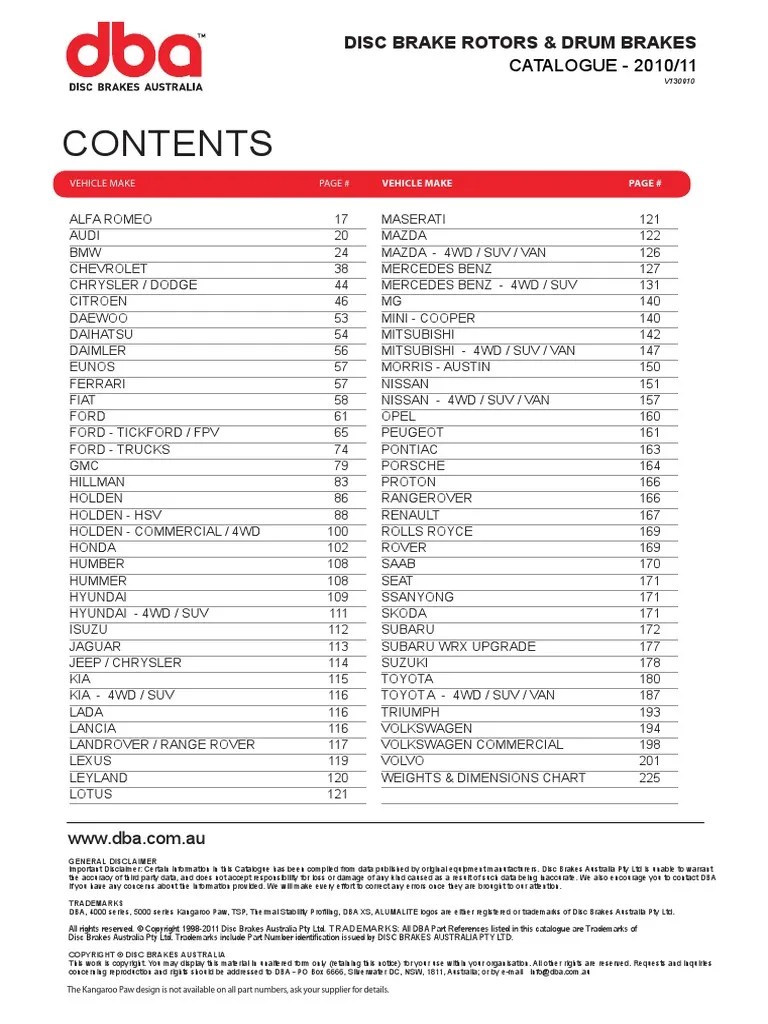Brake Disc Minimum Thickness Chart
Brake Disc Minimum Thickness Chart - You can typically find this. This is an absolute minimum and indicates pad replacement is required. Each vehicle manufacturer specifies a minimum thickness for brake rotors, which is the lowest allowable measurement for safe operation. According to the federal government, the brake pads on the steering axle should never get lower than 1.6 millimeters with the hydraulic disc, drum or electric brakes. Ideally, your brake pads should be thicker than 6.4 mm (¼ inches) for proper functioning. Bmw brake discs/rotors are stamped with a minimum thickness.
Ideally, your brake pads should be thicker than 6.4 mm (¼ inches) for proper functioning. Bmw brake discs/rotors are stamped with a minimum thickness. What’s the recommended thickness of your brake pads? How do you measure the minimum brake rotor thickness? If you notice any signs of brake rotors that have become misshapen or worn too thin, check the disc thickness asap.
How do you measure the minimum brake rotor thickness? Disc brake rotor minimum thickness (also known as scrap thickness) is the minimum safe working thickness of a rotor at which it must be replaced. Up to 1% cash back the minimum thickness or minimum discard thickness refers to how thin a rotor can be before it's considered dangerous. If it’s.
This is an absolute minimum and indicates pad replacement is required. Shop onlinechat support availablefind a dealer Learn how to use a brake rotor thickness chart for safer driving. In this section, we will explore the steps involved in measuring the minimum brake disc thickness using a gauge. Disc brake rotor minimum thickness (also known as scrap thickness) is the.
If rotors fall below this limit, they may. When a disc rotor reaches rmt it must be. You can typically find this. To measure the minimum brake rotor thickness correctly, you will need to use a gauge. The stamped minimum thickness is used to determine whether the brake discs/rotors require replacement.
Each vehicle manufacturer specifies a minimum thickness for brake rotors, which is the lowest allowable measurement for safe operation. Continued operation at or below. Up to 1% cash back the minimum thickness or minimum discard thickness refers to how thin a rotor can be before it's considered dangerous. This is an absolute minimum and indicates pad replacement is required. When.
Ideally, your brake pads should be thicker than 6.4 mm (¼ inches) for proper functioning. Up to 1% cash back the minimum thickness or minimum discard thickness refers to how thin a rotor can be before it's considered dangerous. Learn how to use a brake rotor thickness chart for safer driving. First measure the linings to make sure they are.
Brake Disc Minimum Thickness Chart - Some of the most common signs include: Shop onlinechat support availablefind a dealer Find out why it's crucial to monitor your brake discs' thickness now. In this section, we will explore the steps involved in measuring the minimum brake disc thickness using a gauge. Each vehicle manufacturer specifies a minimum thickness for brake rotors, which is the lowest allowable measurement for safe operation. If rotors fall below this limit, they may.
When it reaches what we call the “minimum thickness”. From taking measurements in multiple points to the potential. Learn how to use a brake rotor thickness chart for safer driving. If it’s thinner than this, consider getting. The stamped minimum thickness is used to determine whether the brake discs/rotors require replacement.
Some Of The Most Common Signs Include:
Learn how to use a brake rotor thickness chart for safer driving. List of chasis numberswide selection of partsvw experts since 1975great prices Continued operation at or below. Bmw brake discs/rotors are stamped with a minimum thickness.
Up To 1% Cash Back The Minimum Thickness Or Minimum Discard Thickness Refers To How Thin A Rotor Can Be Before It's Considered Dangerous.
Measurements should be taken in at least 4. How do you measure the minimum brake rotor thickness? Disc brake rotor minimum thickness (rmt) is the minimum safe working thickness of a rotor. Each vehicle manufacturer specifies a minimum thickness for brake rotors, which is the lowest allowable measurement for safe operation.
Ideally, Your Brake Pads Should Be Thicker Than 6.4 Mm (¼ Inches) For Proper Functioning.
What’s the recommended thickness of your brake pads? Shop onlinechat support availablefind a dealer Find out why it's crucial to monitor your brake discs' thickness now. Coupons & offerssynthetic blend oilthe works packagefactory certified techs
When It Reaches What We Call The “Minimum Thickness”.
If it’s thinner than this, consider getting. Disc brake rotor minimum thickness (also known as scrap thickness) is the minimum safe working thickness of a rotor at which it must be replaced. First measure the linings to make sure they are each above. Every vehicle has a specified minimum thickness (measured in millimeters or inches) that must not be exceeded for safe operation.




